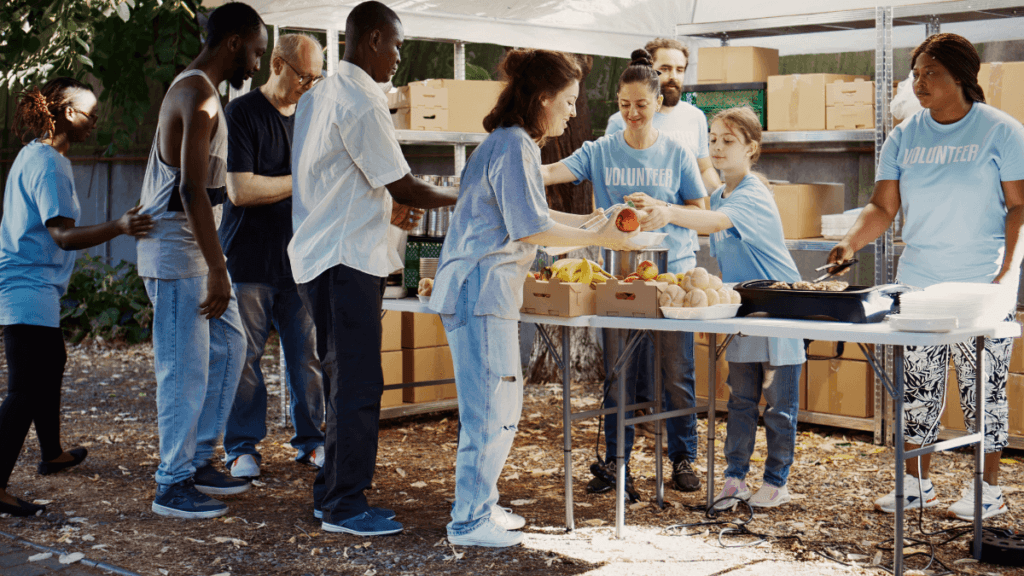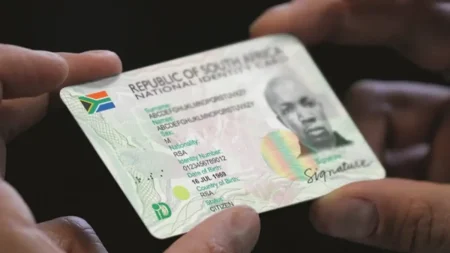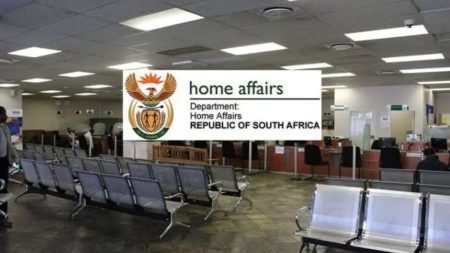If you’re seeking food parcels in the Free State, several organizations and programs are actively distributing food parcels to support vulnerable individuals and families. Access to these resources can be life-changing for those experiencing food insecurity, and it’s essential to know where to turn for help.
In this guide, we’ve outlined the various avenues available for obtaining food parcels, including government initiatives, university programs, and efforts by non-governmental organizations (NGOs) and community-based organizations (CBOs).
1. Department of Social Development (DSD) – Community Nutrition and Development Centres (CNDCs)
The Department of Social Development (DSD) plays a crucial role in addressing food insecurity across South Africa, including the Free State. The DSD operates 235 Community Nutrition and Development Centres (CNDCs) across the province, providing food parcels to those in need, particularly focusing on marginalized and vulnerable populations.
These centres are strategically located in both urban and rural areas to ensure that food parcels reach those most in need. The goal of the CNDCs is to offer more than just food parcels – they also provide community-based services aimed at improving nutrition and promoting sustainable development.
How to Access Assistance from CNDCs:
To apply for assistance, you can contact your nearest CNDC directly or visit the Free State Department of Social Development website for more details. The process typically involves filling out an application form and meeting specific eligibility criteria. The CNDCs distribute food parcels regularly, and each centre may have its own schedule of distribution.
For more information:
Contact Number: 012 312 7727
Website: Free State DSD Official Website
Cited: Solidarity Fund Report, DSD Official Website
2. University of the Free State – No Student Hungry (NSH) Programme
Recognizing that food insecurity can also impact students, the University of the Free State (UFS) has implemented the No Student Hungry (NSH) Programme. This initiative is designed to assist students who may be struggling with accessing nutritious meals. As part of the programme, food parcels are provided to students who face financial strain, ensuring that education is not hindered by hunger.
The NSH Programme provides food parcels and emergency food assistance to students who meet specific eligibility criteria, ensuring that education is not hindered by hunger. The program is especially vital during exam periods when many students face greater financial strain.
How to Apply for Assistance:
Students interested in receiving support from the NSH Programme must complete an online application form. The eligibility criteria are typically based on financial need, and the application form can be accessed through the UFS website.
For more details:
Email: FoodEnvironment@ufs.ac.za
Website: NSH Programme Website
Cited: UFS No Student Hungry Programme
3. Community-Based Organizations (CBOs) and Non-Profit Organizations (NPOs)
Several local Community-Based Organizations (CBOs) and Non-Profit Organizations (NPOs) work tirelessly to distribute food parcels to vulnerable individuals and families throughout the Free State. These organizations often collaborate with the Department of Social Development and other partners to ensure the effective delivery of food parcels.
These organizations, which may include churches, Early Childhood Development (ECD) centres, and local feeding programs, serve as vital access points for food parcels, especially in communities with limited resources. They also provide additional services such as educational programs, skills development, and emotional support.
How to Get Help:
If you’re looking for food parcels through CBOs or NPOs, it’s best to contact your local municipality or speak with community leaders who can direct you to these organizations. Local municipality offices often have lists of active organizations in their regions.
For more information:
Contact Local Municipality: Reach out to your local municipality office for details about food parcel assistance programs in your area.
Cited: Solidarity Fund Report, Local Municipality News
4. Non-Governmental Organizations (NGOs) and Foundations
Several prominent Non-Governmental Organizations (NGOs) and foundations are also playing an essential role in addressing food insecurity in the Free State. These organizations often provide large-scale distribution of food parcels, helping families and communities in crisis.
Gift of the Givers
Gift of the Givers is a well-established NGO that provides food parcels to communities in need. With a strong presence across South Africa, they have been instrumental in offering humanitarian aid, especially in times of crisis. They provide food parcels, water, and medical assistance to vulnerable communities.
For more information:
Website: Gift of the Givers Website
Operation Hunger
Operation Hunger is another key player in the fight against food insecurity. This organization distributes food parcels to families in targeted communities, focusing on those facing extreme poverty and dire conditions. Their efforts ensure that the most vulnerable have access to essential nutritional support through food parcels.
For more information:
Website: Operation Hunger Website
FoodForward SA
FoodForward SA operates as one of the largest food rescue and distribution organizations in South Africa. They collaborate with various retailers, farmers, and suppliers to gather surplus food and distribute it as food parcels to vulnerable households across the country. Their mission is to provide nutritious food parcels that meet the dietary needs of recipients.
For more information:
Website: FoodForward SA Website
Cited: Gift of the Givers, Operation Hunger, FoodForward SA Websites
5. Additional Resources and Local Initiatives
In addition to the aforementioned organizations, there are often smaller local initiatives, grassroots programs, and ad-hoc efforts that provide food parcels during times of emergency.
These include local food banks, community kitchens, and school feeding programs.
Local Schools: Many schools in the Free State run feeding schemes that provide nutritious meals to children, especially in underprivileged areas. These meals are essential for ensuring that children receive the necessary nutrition to perform well in school. Some schools distribute food parcels to children’s families as well.
Local Food Banks: Several local food banks may be accessible to community members facing food insecurity. These food banks are often organized by municipalities, religious groups, or volunteer organizations, and they offer a vital lifeline to those in need through the distribution of food parcels.
If you are unsure where to find such services, local community leaders, educators, and healthcare providers are often valuable sources of information on available food parcel distribution programs.
How to Reach Out for Help
For direct assistance or more information, here are the contact details for the primary organizations and programs in the Free State:
Free State Department of Social Development:
Contact Number: 012 312 7727
Website: Free State DSD Official Website
University of the Free State – NSH Programme:
Email: FoodEnvironment@ufs.ac.za
Website: NSH Programme Website
Gift of the Givers:
Website: Gift of the Givers Website
Operation Hunger:
Website: Operation Hunger Website
FoodForward SA:
Website: FoodForward SA Website
For smaller, local programs, contact your local municipality office or community leaders for more information on food parcel distribution efforts.
Learn More: How to Register for a Community Feeding Scheme
Food insecurity is a significant challenge for many individuals and families in the Free State. However, there are numerous resources and organizations dedicated to alleviating this issue by providing food parcels and other forms of support. Whether you are a student facing financial challenges or a family in need, there are various avenues available to access food parcels.
By reaching out to the Department of Social Development, the University of the Free State’s No Student Hungry programme, community organizations, or NGOs, you can find support to meet your nutritional needs and ensure that you and your loved ones can thrive.
If you need help finding a food parcel program near you or have any other questions, don’t hesitate to contact the organizations mentioned above. These resources are here to assist you.










